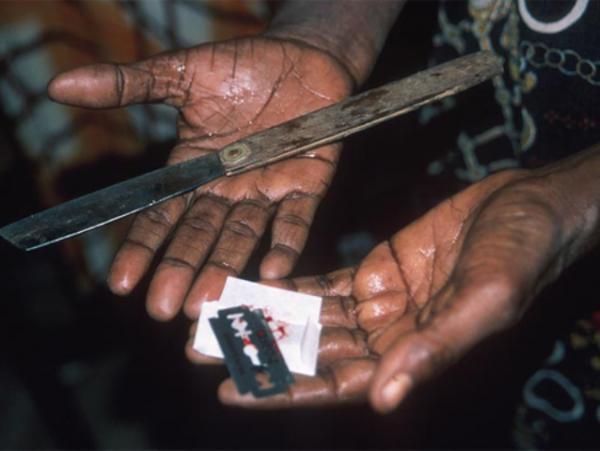The United Nations Children Education Fund (UNICEF) and Ekiti State Government have decried the increasing rate of Female Genital Mutilation, (FGM) practice in the state.
They said that it would take collective efforts from all stakeholders to curb the trend.
They made the submission at a stakeholders’ meeting of the State Technical Committee on FGM in Ado-Ekiti on Friday.
Speaking at the meeting, UNICEF Consultant on FGM/C, Mrs Aderonke Olutayo, said that UNICEF was collaborating with the state government to provide technical supports in order to eliminate the practice from the society.
She commended the state government for its determination by putting in place framework for prosecution of offenders, but suggested the need for legal and policy backing from the state government to curb the harmful practice.
She said that the practice had reached about 72 per cent level in the state, describing female children between the ages of zero and 15 years as main victims.
“At the same time, some communities still practise FGM on teenagers and adults, even up till the marriageable age.”
The UNICEF Consultant identified cultural and traditional beliefs as being responsible for the practice, noting that some people saw it as a family heritage, “but we must stop it.
“Some of those who perform the genital mutilation are unskilled; they do it with primitive and unsterilised equipment and do damage to human parts.
“The World Health Organisation has a law prohibiting this practice and it has been domesticated in Nigeria, particularly in Ekiti State.
“I want to appeal that the laws must be implemented to protect the lives of our women.”
She charged the participants to see the campaign against FGM as an activism to rescue women from an unprofitable traditional practice, urging stakeholders to mobilise and eliminate the practice in the State.
Declaring the technical committee meeting open, the Ekiti state Commissioner for Health, Dr Moji Yaya-Kolade, who was represented by the Director, Public Health in the ministry, Dr Ade Oluwafemi, charged members of the committee to join hands with government in eradicating the menace in the state.
She said that the practice, which was prevalent in the rural areas must be nipped in the bud with concerted efforts from officials of Primary Health Care because of their proximity to the grassroots.
She said that over 72 per cent cases were reported in Ekiti, ranking the state high in the prevalence of the harmful practice, and urged the stakeholders to join in the campaign against the act.
Yaya-Kolade pointed out that FGM had done more harm to women, saying that the victims were either carrying lifetime infectious diseases like HIV, barrenness, hemorrhage or broken homes due to sexual non-satisfaction and other associated problems due to the cutting of their genitals.
The Permanent Secretary, Primary Health Care Development Agency, Mrs Bola Arogundade, said the programme was meant to mobilise the younger generation against the practice and charged the stakeholders that the end to the practice should be now.
She described female genital mutilation as “a flagrant infringement on the rights of the female gender,” and urged the government at all levels to stop the menace in the overall interest of motherhood.
The commissioner explained that the state had domesticated the law banning the practice in the state and warned that anyone caught still engaging in the practice would be prosecuted.
She charged the womenfolk, whom he described as “the real victims” to intensify their campaign against cutting of the female genitals, to create more awareness.
Also addressing the meeting, Mrs Olukemi Akinleye, the Desk Office on FGM in the state Ministry of Health, recalled an experience of a survivor which gave her psychological imbalance.
“She always suffered each time she remembered the level of dehumanization being experienced by the victims.”
She said that those who practised the act were hiding under the myth that retention of the female clitoris could cause promiscuity and stillbirth, which she said had been proven wrong by medical experts due to research .
The News Agency of Nigeria reports that the meeting was attended by stakeholders from UNICEF, National Orientation Agency, Ministry of Women Affairs, the Nigeria Police, NSCDC, Media, trade union/professional organisations, Non Governmental Organisations, among others.
The State Technical Committee members were encouraged to intensify more efforts to eradicate the menace by communicating with people especially in the local tongue.
The meeting also called on traditional rulers to reach across to more family heads to bring FGM elimination to the grassroots, extend the advocacy to more schools and educate teachers on the dangers inherent in the practice.
It also urged government at all levels to, henceforth, arrest and sanction anyone that goes against the practice to show that the existing law is active. (NAN)

 Join Daily Trust WhatsApp Community For Quick Access To News and Happenings Around You.
Join Daily Trust WhatsApp Community For Quick Access To News and Happenings Around You.



